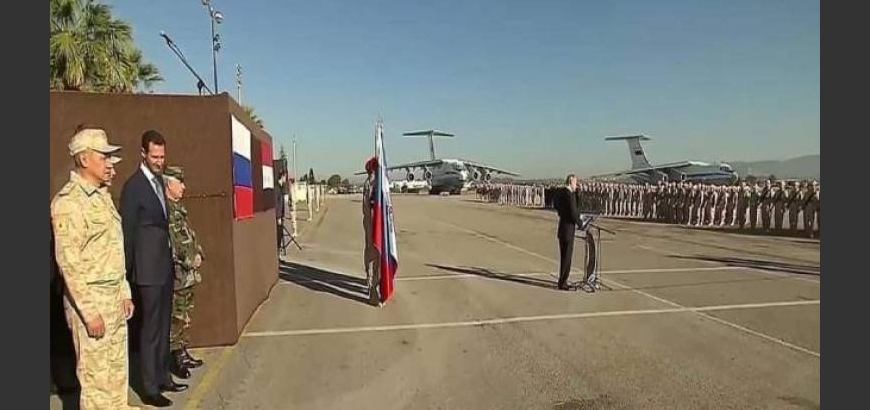Russia has set the ground work to announce its long-term control over the Syrian Tartous port through disclosures made by its Deputy Prime Minister, Yury Borisov, who is visiting Damascus. After meeting him, the Syrian regime head Bashar al-Assad announced on Saturday that Moscow was moving towards “leasing” the port on the Mediterranean Sea for 49 years.
The Russian Sputnik agency said that: “Tartous port in Syria will be leased to Russia for 49 years for transportation and economic usage within the coming week.” It also quoted Borisov—who is also his country’s president on the Joint Russian-Syrian Committee for Trade, Economic, Scientific and Technical Cooperation—saying that the, “main issue that needs to be given positive dynamics is the usage of Tartous port. The visit [to Damascus] has brought together all of these agreements. We have progressed very positively in this matter and we hope that the contract will be signed within a week, and that for a period of 49 years the Tartous port will serve Russian commercial operations.”
Sputnik and other Russian media added that, “the decision regarding the Tartous port was taken months ago” while Moscow had announced before that, at the beginning of 2017, an “agreement” allowing naval vessels from its warships to remain at the base in Tartous for 49 years, subject to renewal for another quarter-century.
In addition to the Tartous commercial port and the Russian military base in the same province, Russia has used the Hemeimeem air base in southern Lattakia since September 2015 as its primary military base in Syria, and from there it directs all its military and other operations in Syria. Russian President Vladimir Putin visited the base in December 2017, and received Syrian regime head Bashar al-Assad.
This article was translated and edited by The Syrian Observer. Responsibility for the information and views set out in this article lies entirely with the author.


